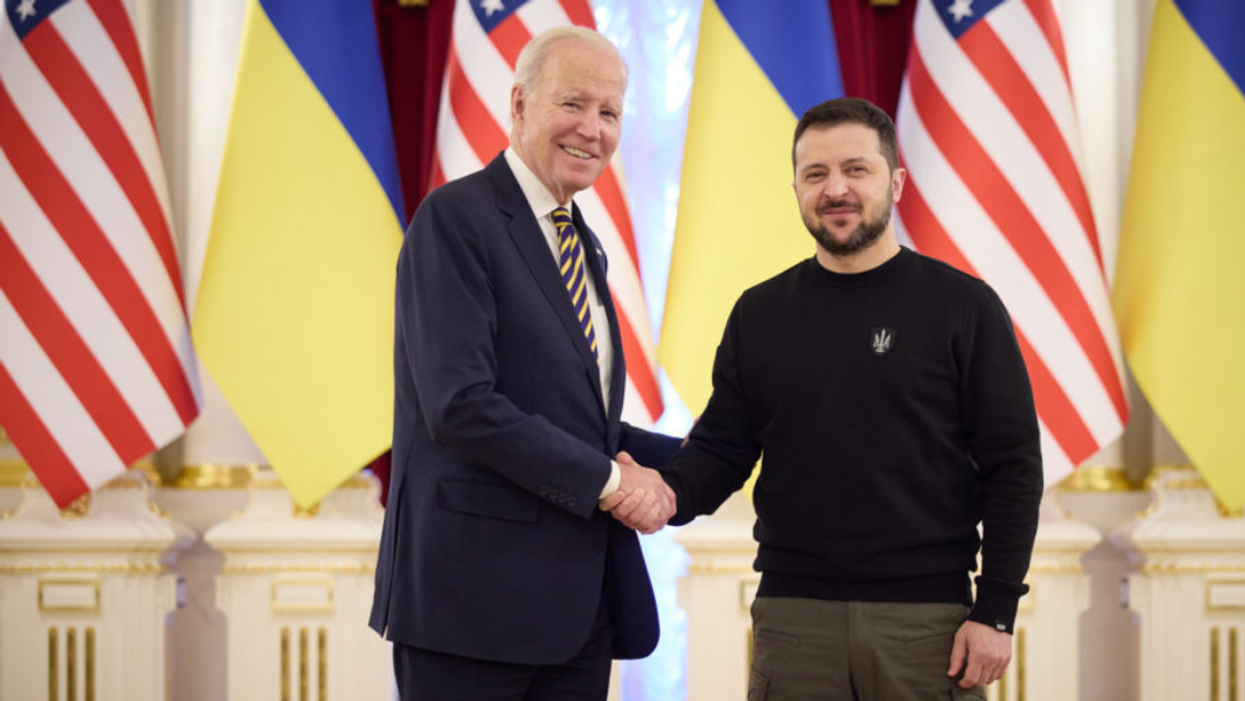Richard Davies is a journalist and podcaster. He runs the podcast consultancy, DaviesContent.
By any measure, this has been a momentous week for global politics. President Biden’s surprise trip to Kyiv, his “freedom” speech in Warsaw, the visit of China’s top diplomat to Moscow, and Vladimir Putin’s decision to suspend Russian participation in the last remaining nuclear arms treaty with the U.S. are all signs of deepening big-power tensions.
This coincides with the first anniversary of the bloodiest conflict in Europe since World War Two. In the early hours of February 24 last year, Putin’s tanks rolled across Ukraine’s borders.
To the surprise of many, the past year saw a dramatic strengthening of the NATO military alliance, as Europe and The United States rallied support for Ukraine. At the same time, the world’s two largest autocratic powers— China and Russia— moved ever closer together in a partnership that stirs reminders of the Cold War. Both regimes seek to dominate as much of the world as they can.
In his state-of-the-union style address, Putin blamed the U.S and its allies for a war that he launched himself. “The West,” he claimed, “is using Ukraine as a battering ram against Russia." Despite extremely heavy troop losses, Putin’s ultimate goal of dominating Ukraine and forcing it to become part of his Russian empire remains unchanged.
In Warsaw this week, Biden’s stark rhetoric harkened back to an earlier time, at least four decades ago, when American presidents often spoke of the epic struggle between dictatorships and democracy. “Appetites of the autocrat cannot be appeased. They must be opposed,” he declared. “The work in front of us is not just what we’re against but what we’re for….There is no higher aspiration than freedom.”
Biden promised $550 million in addition to $30 billion in military and humanitarian aid already sent to Ukraine. The Administration has reasserted itself as the dominant player in the security of Europe. Now NATO has a clearer mission statement.
While much has been written about the war, and the political state-of-play, the President’s trip has broader implications for the fundamental values that are a vital part of the growing struggle against autocratic powers.
“You can’t have democracy and freedom if you are not also willing to defend your national sovereignty against an armed invasion,” says Danish human-rights advocate, Jacob Mchangama. “These principles and fundamental values do require something that maybe has been forgotten in Europe: a willingness to defend against invasion.”
I spoke with Mchangama for the latest episode of our podcast, “ How Do We Fix It? ” His recent history of free speech makes him well-qualified to speak of the deeper issues at stake.
One of the biggest surprises of the past year has been the strength of European and American support for President Zelenskyy and Ukraine. “I’m very heartened by it,” says Mchangama. “It’s a good antidote to a decay of the West and complacency of democracies narrative that has been driving some of the authoritarian backlash.”
“Even a year in, there still seems to be solid support in many countries for the Ukrainian cause and for continuing to supply them with the means to defend themselves and hopefully decisively turn the tide.”
Many supporters of Ukraine say they are fighting for us, and the values of freedom of expression and rule of law. What remains unclear is whether the return to cold war rhetoric by President Biden and other leaders will have a positive impact on American democracy and reduce the damage inflicted by the domestic partisan divide.



















 Senate Committee on Commerce, Science, and Transportation ranking member Sen. Maria Cantwell (D-WA) (R) questions witnesses during a hearing in the Russell Senate Office Building on Capitol Hill on February 10, 2026 in Washington, DC. The hearing explored the proposed $3.5 billion acquisition of Tegna Inc. by Nexstar Media Group, which would create the largest regional TV station operator in the United States. (Photo by Chip Somodevilla/Getty Images)
Senate Committee on Commerce, Science, and Transportation ranking member Sen. Maria Cantwell (D-WA) (R) questions witnesses during a hearing in the Russell Senate Office Building on Capitol Hill on February 10, 2026 in Washington, DC. The hearing explored the proposed $3.5 billion acquisition of Tegna Inc. by Nexstar Media Group, which would create the largest regional TV station operator in the United States. (Photo by Chip Somodevilla/Getty Images)
